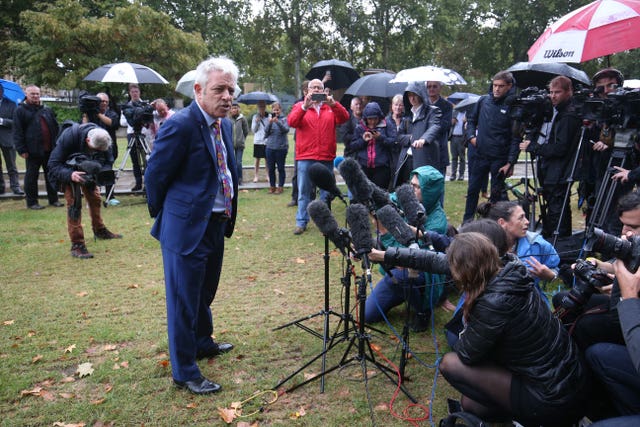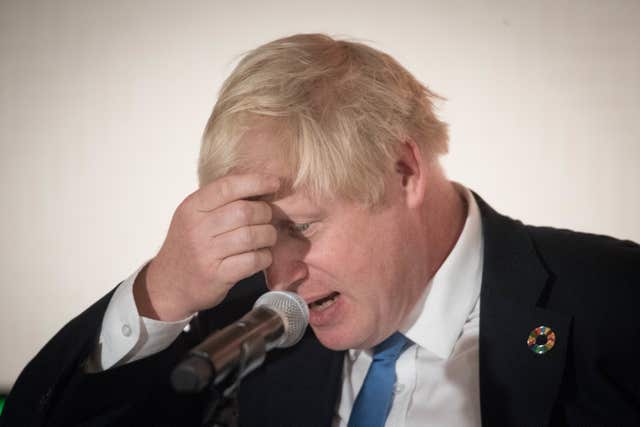Parliament to resume after court overturns shutdown: What you need to know
MPs and peers will be back at Westminster after a humiliating Supreme Court defeat for Boris Johnson.

MPs will return to Westminster on Wednesday after the Supreme Court ruled that Boris Johnson’s decision to suspend Parliament for five weeks was unlawful.
– What happened at the Supreme Court?
The president of the UK’s highest court, Lady Hale, announced on Tuesday morning: “Parliament has not been prorogued.”
But the unanimous judgment of all 11 justices was that it was for Parliament – and particularly the speakers of both houses – to decide what to do next.
– How did the Prime Minister respond to that?
Boris Johnson said he strongly disagreed with the verdict and Downing Street made clear he will not resign.
Mr Johnson is cutting short his trip to the United Nations in New York to be in Westminster on Wednesday.
– What will happen in the Commons on Wednesday?
Speaker John Bercow announced that the Commons will sit at 11.30am and while the usual Wednesday session of Prime Minister’s Questions will not take place, he said there will be opportunities for MPs to hold the Government to account.

– What did the party leaders say?
Labour’s Jeremy Corbyn called for the PM to resign and brought forward his party conference speech to Tuesday afternoon so he could be back in Westminster by Wednesday.
Liberal Democrat leader Jo Swinson said the justices’ decision proved Mr Johnson was “not fit to be Prime Minister”.
And Brexit Party leader Nigel Farage called for the Prime Minister’s chief adviser Dominic Cummings to be sacked, adding: “The calling of a Queen’s Speech and prorogation is the worst political decision ever.”
– Where does it leave the Prime Minister?
In a bind. He cannot control the Commons and as he put it: “we have a Parliament that is unable to be prorogued” and “doesn’t want to have an election”.

In a hint he could have another go at suspending Parliament – presumably for the usual matter of days at the end of a session – he said there was a “good case for getting on with a Queen’s Speech”.
– Where does this leave Brexit?
Mr Johnson said he “will not be deterred” from delivering Brexit on October 31.
He hopes that the EU summit on October 17 will provide a breakthrough, but if not he faces another headache because of the so-called Benn Act which aims to prevent a no-deal exit.
– So could Brexit be delayed?
The Benn Act requires the Prime Minister to ask the EU to delay Brexit if Parliament has not backed a Withdrawal Agreement or voted in favour of a no-deal exit by October 19.

Government ministers have repeatedly dodged questions about whether they think there are loopholes they could use to avoid that law – but would Mr Johnson really risk another legal battle after his Supreme Court humiliation?
– What about the Tory conference?
Mr Johnson’s party is expected to gather in Manchester from Sunday for four days, but it is unclear whether the Commons will still be sitting – meaning MPs will be required in Westminster.
But party chairman James Cleverly said “of course” the conference – which the Tories hope to use to make a string of pre-election announcements – will go ahead.
– What about the rest of the political agenda?
The ruling that the suspension was unlawful means any unfinished Bills that were discarded in the wrap-up process can now come back into play – MPs expect to be able to debate the Domestic Abuse Bill, for example.
It will be business as usual in terms of the legislation being debated – but little else will feel anything like the same following the Supreme Court intervention.

– Does this bring a snap election closer?
All the main party leaders have said they want one but first they want to make sure Mr Johnson will not carry out a no-deal Brexit on October 31.





